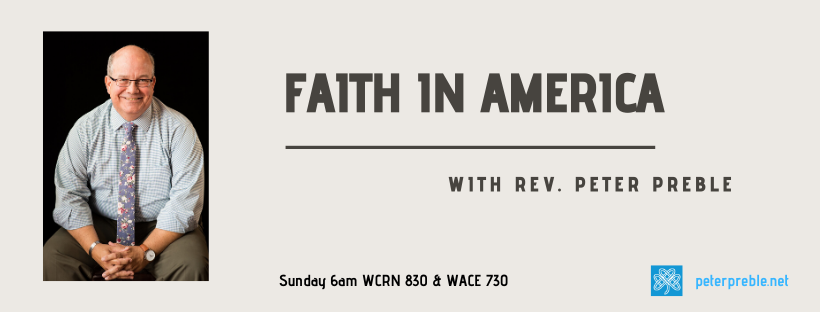
This commentary was written as the opening segment of my new radio show Faith in America.
I recently came across this profound saying:
“By being taught to avoid talking about politics and religion has led to a misunderstanding of politics and religion. What we should have been taught was how to have civil conversations about a difficult topic.”
By not having these conversations, we have forgotten how to have civil conversations about difficult topics. There was a time, in the not so distant past, when a conversation could be had about an issue, and it would remain on the subject. Sure, it might get heated, and maybe tempers would flare a bit, but the conversation or debate usually stayed on track. It was thought disrespectful and uncouth if you will, to make the discussion personal. Now I don’t mean not talking about yourself and how the issue being discussed affects you on a personal level. I mean attacking the speaker on a personal level to try and discredit them not on the facts of the issue or the weakness of their argument, but attacking the speaker to discredit them personally. Debates used to be won and lost based on the facts of the argument and not the personality of the speaker.
It seems today that if we cannot defend our position or worse have no interest in defending our position, we go on the attack personally. Recently this happened to me. I was discussing an issue and the person on the other side, obviously did not like something I said, so they went on the attack. They attacked my profession and me as a person but did not try, in the slightest, to defeat my position with facts, just personal attacks. People on both sides of the theological and political spectrum are guilty of this; this is certainly not a one-sided issue.
We need to get back to the time when we focused on the position, the facts of the argument, and not the person taking a particular position.
The other part of this is the misguided notion that we can agree to disagree. I will admit that on some issues, this can be the case, but not every position is valid or equal. For example, there are not two sides to racism, white supremacy, or white nationalism. There are not “good people on both sides” there is only one side to these issues. I will not buy into the fallacy that because we have freedom of speech in America, the statement everyone is making is valid. I am not willing to surrender the moral high ground on issues whatever that issue might be. Agreeing to disagree is not a solution, walking away or not engaging is a solution, but agreeing to disagree is not. Who is the arbiter of this, I am, you are, society is. Society determines what is acceptable and what is not. And society has determined that there is no room for some opinions. You have every right to hold your opinion, and I have every right to disagree with you. By the way, if I disagree with you, if I fight against everything you stand for, I am not oppressing you; that is a weak response.
The final point is learning how to listen. Sure, we listen to each other, but are we hearing them. Most of the time and I am guilty of this as anyone; we are only listening to find a spot where we can jump in and push our point. Active listening is a technique that is used in counseling, training, and solving disputes or conflicts. It requires that the listener fully concentrate, understand, respond, and then remember what is being said. Active and attentive listening requires that we not only hear what the other person is saying but that we listen to them, really listen to them with an openness to understanding and learning.
You cannot force someone to comprehend a message they are not ready to receive. Still, you must never underestimate the power of planting the seed. That is what I hope to do here on Faith in America is plant seeds, get us all to think a little more about things, grow a little more, and yes, make this world, or this part of it anyway a kinder gentler place. We may not always agree, but if we disagree, I hope it is with dignity and respect.
